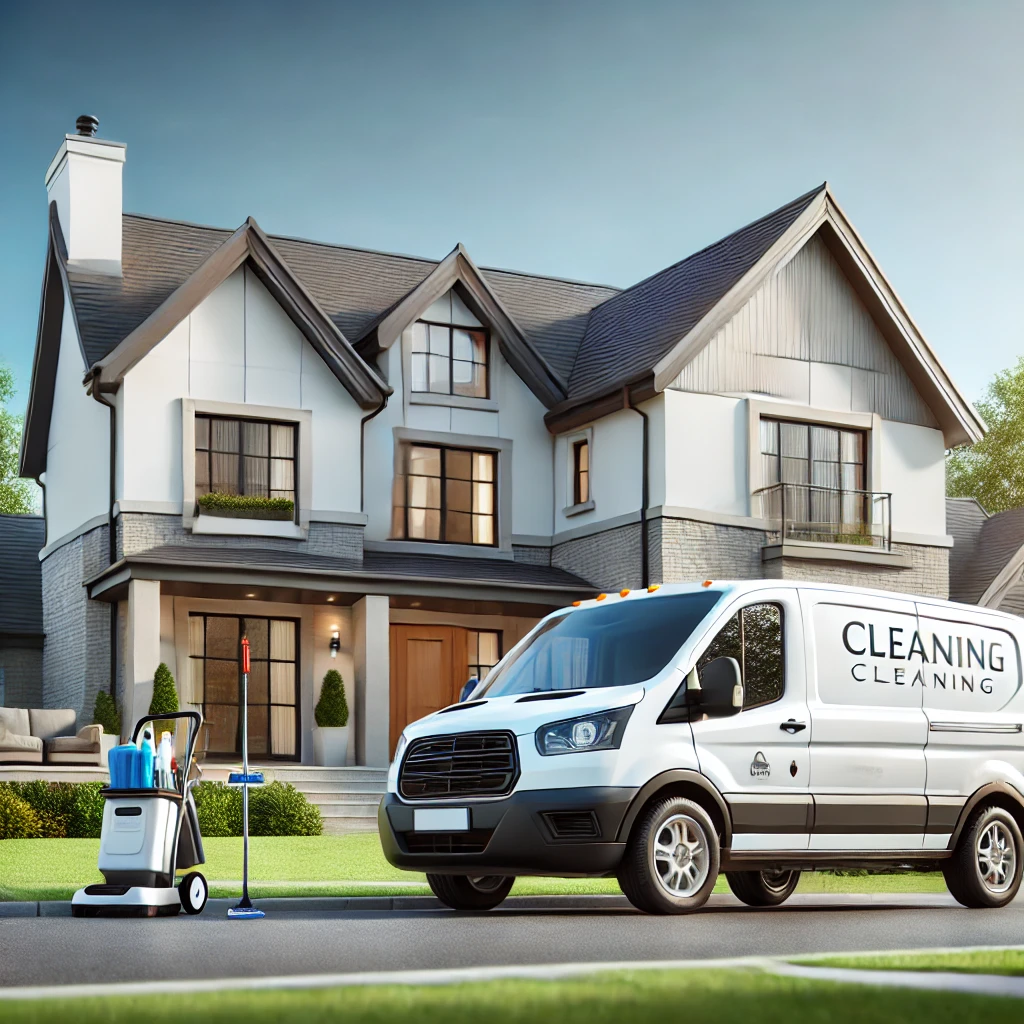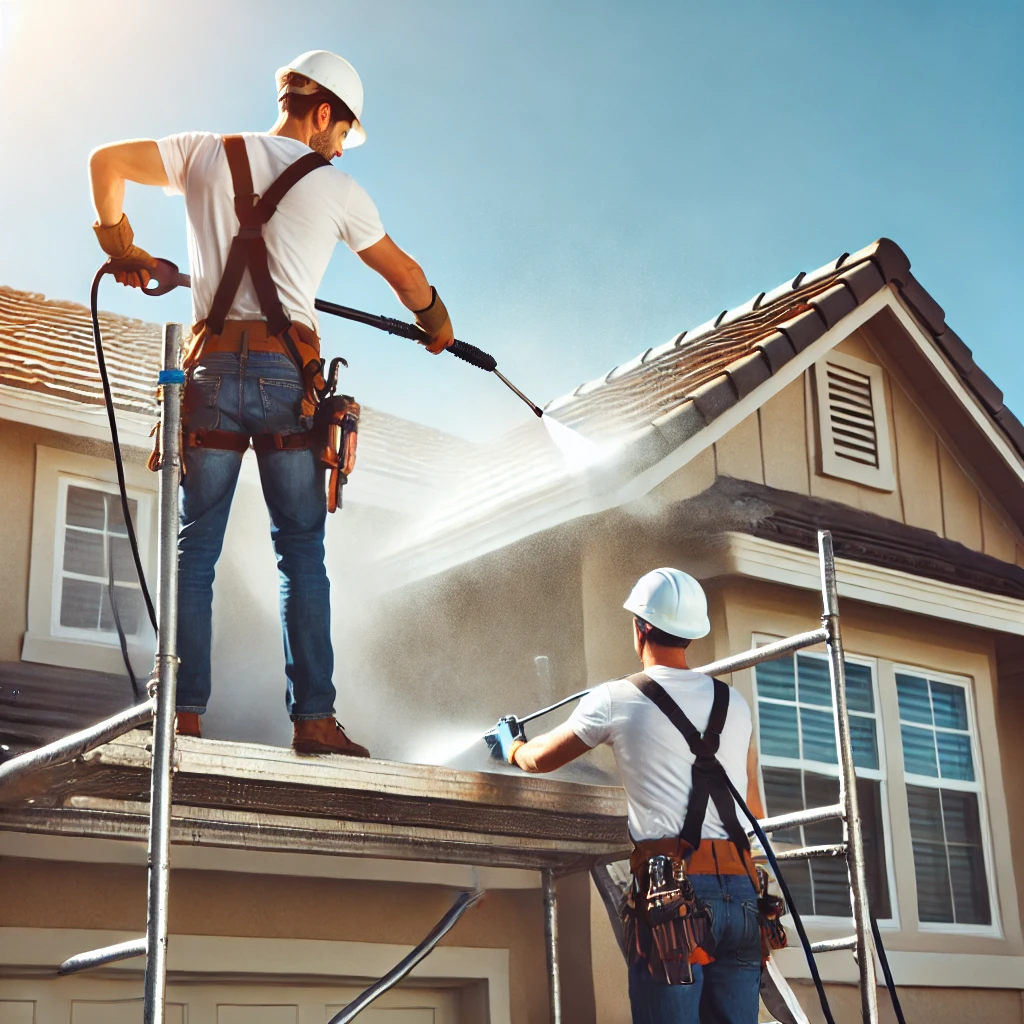Getting Your Roof Cleaned When You Should Do It and Is It Safe to Power Wash?
Your roof plays a vital role in protecting your home from the elements, but over time, it can accumulate dirt, debris, moss, and algae that not only detract from its appearance but can also cause damage. Regular roof cleaning is essential to maintaining its integrity and prolonging its lifespan. In this article, we’ll explore when you should clean your roof and whether it’s safe to power wash it.
Signs That Your Roof Needs Cleaning
Before deciding to clean your roof, it’s important to recognize the signs that indicate it’s time for maintenance: Moss and Algae Growth: Moss and algae thrive in damp, shaded areas and can quickly spread across your roof. These growths are more than just an eyesore—they can trap moisture against your roof’s surface, leading to rot and damage over time. Debris Accumulation: Leaves, twigs, and other debris can accumulate on your roof, especially after a storm. This debris can clog gutters, trap moisture, and cause water to back up under your shingles, leading to leaks. Discoloration: Black streaks or discoloration on your roof are often caused by algae growth. While these stains are mostly cosmetic, they can detract from your home’s curb appeal and indicate the need for cleaning. Damaged or Missing Shingles: While cleaning your roof, you may also notice signs of wear, such as cracked, curled, or missing shingles. Addressing these issues during the cleaning process can prevent more significant problems down the line.
When Is the Best Time to Clean Your Roof?
Timing your roof cleaning is crucial to achieving the best results. According to local cleaning experts from Cleanway.ie, Here are some factors to consider when scheduling this important maintenance task: Mild Weather Conditions: The best time to clean your roof is during mild weather, typically in the spring or early fall. These seasons offer moderate temperatures and lower humidity, making it easier to clean the roof effectively without the risk of heat damage or slippery conditions. After a Storm: If your area has recently experienced a storm, it’s a good idea to inspect your roof for debris and damage. Cleaning your roof shortly after a storm ensures that leaves, branches, and other debris are removed before they can cause long-term damage. Before the Rainy Season: In areas with a pronounced rainy season, cleaning your roof beforehand can help prevent moisture-related issues, such as leaks or mold growth, by ensuring your gutters and downspouts are clear and functioning properly.
Is It Safe to Power Wash a Roof?
One of the most common questions homeowners have about roof cleaning is whether it’s safe to use a power washer. The answer depends on several factors: Type of Roofing Material: Power washing is not recommended for all types of roofing materials. Asphalt shingles, for example, can be damaged by the high pressure of a power washer, leading to granule loss and reduced lifespan. However, some roofing materials, such as metal or concrete tiles, may tolerate power washing if done correctly. Risk of Damage: Power washing can cause significant damage to your roof if not done properly. The high-pressure water can strip away protective layers, force water under shingles, and even cause them to lift or break. This can lead to leaks, water damage, and costly repairs. Alternatives to Power Washing: Instead of power washing, consider using a soft wash method. Soft washing involves using low-pressure water combined with specially formulated cleaning solutions to gently remove dirt, algae, and moss without damaging your roof. This method is safer for most roofing materials and is highly effective at cleaning and sanitizing the surface.
Choosing the Right Roof Cleaning Professionals
If you’re considering cleaning your roof, it’s important to hire experienced professionals who understand the best practices for your specific roofing material: Experience and Expertise: Look for a roof cleaning service with experience in handling your type of roof. They should be knowledgeable about the safest and most effective cleaning methods, whether it’s soft washing or another technique. Proper Equipment: Ensure that the company uses the right equipment for the job. For example, soft washing requires low-pressure sprayers and appropriate cleaning solutions that won’t harm your roof or the environment. Insurance and References: Always check that the roof cleaning company is fully insured and can provide references from previous clients. This protects you in case of any accidental damage and gives you peace of mind knowing the job will be done correctly. Regular roof cleaning is essential for maintaining your home’s appearance and protecting its structural integrity. If you notice signs of moss, algae, or debris buildup, it’s time to schedule a cleaning. While power washing may seem like a quick solution, it can be risky for many roofing materials. Opting for a professional soft wash service is often the safer and more effective choice. By keeping your roof clean and well-maintained, you’ll ensure it remains in excellent condition for years to come.


